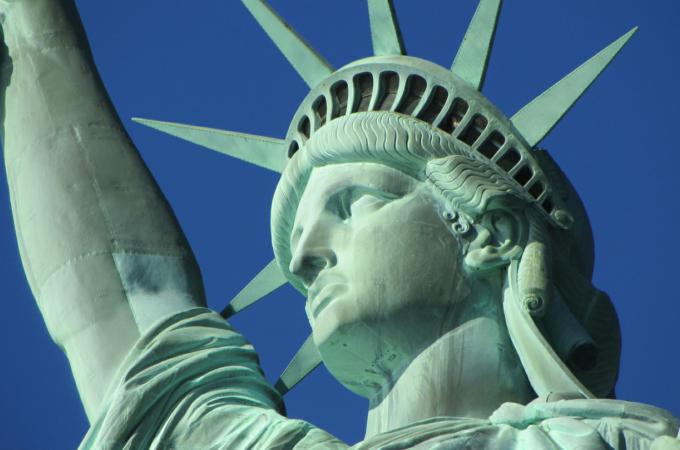Working to overcome the 'globalization of indifference'
The Jubilee Year of Mercy comes to its official close on Sunday, Nov. 20. Here at Catholic Charities we have been witness to the many, many ways in which our community has lived out Pope Francis' call to overcome the "globalization of indifference."
We have been especially moved by the example set by Pope Francis as he reached out to prisoners, the homeless, and refugees fleeing worn-torn parts of the world.
Pope Francis has prayed in particular for "a heart which will embrace immigrants," a prayer that we echo at Catholic Charities. Our organization began in 1903 with a vision to provide assistance and hope to families in need and particularly for Boston's then-immigrant and predominantly Catholic population.
Today's Catholic Charities provides services to a broad community, called by our faith to provide service to all, regardless of their faith. Included in that broad community are those who have come to the United States from across the world. Some are immigrants who have come to the United States in hopes of creating a new life and a brighter future for their families. While some of those we serve are among the more than 65 million "people of concern" across the world (the highest number of displaced people since World War II) leaving their homes in search of protection from conflict. It is estimated that 24 people flee every minute of every day.
According to the 2015 United Nations report on the status of refugees, more than 21.3 million of those who are displaced are considered refugees. Syria, Afghanistan and Somalia together accounted for more than half the refugees under UNHCR's mandate worldwide. Further, Colombia, Syria and Iraq had the largest numbers of internally displaced people. Sadly, more than half of the world's refugees are children.
Annually the U.S., which is the world's most generous resettlement nation, accepts less than 1 percent of those 21.3 million refugees. This past year, nearly 85,000 newcomers arrived to the United States with the majority being from Democratic Republic of the Congo, Burma, Syria, Iraq and Somalia.
Most refugees to Massachusetts are resettled in central and western Massachusetts cities due to the high cost of housing in greater Boston. All refugees are referred to a resettlement agency, funded by federal and private resources and receive case management, employment services and social supports for a very limited period of time. Refugees do not have an easy time during the first few months of arrival and benefit immensely from support from local communities and faith groups -- we are privileged to be able to work with many volunteers in our efforts to support these families upon their arrival.
Dr. A. and his family's story is one that has become all too common. Prior to arriving in the U.S., Dr. A. was a renowned cardiothoracic surgeon in Aleppo, Syria; performing up to 5 surgeries per day, often travelling to hospitals throughout Syria to serve those in need. Dr. A. and his equally talented wife, an anesthesiologist, made a wonderful life for their three amazing children. They had a massive home in Aleppo, sent their children to private schools and vacationed in seaside resorts. Then, one day, everything changed. Bombs hit the university campus near to their home and homes in their neighborhood were destroyed. As a family, they made the difficult decision to move mother and the children to Lebanon to try to wait out the violence, while Dr. A. stayed behind to continue his work because he needed to support his family.
Tragically, Dr. A. was severely injured when a double-tap barrel bomb struck his hospital. The first bomb killed innocent patients and bystanders; the second bomb killed and maimed the doctors and nurses who rushed to help the wounded. Dr. A. suffered severe neurological injuries and required medical treatment not available in Syria or neighboring countries at the time. Thanks to his wife's tireless efforts, Dr. A. was able to come to the United States and Catholic Charities began its work to resettle Dr. A.
Dr. A's road to recovery was complicated and long. Separated from his family, he counted on Catholic Charities staff and volunteers to provide safe housing and gain access to desperately needed health care and rehabilitation services. In addition, our Immigration Legal Services team began the long and complicated process for family reunification. Just this fall after a more than three year wait, the family is once again living together in Massachusetts. Here they hope to build a new life.
Go to www.ccab.org to learn more about our work.
- Deborah Kincade Rambo is president of Catholic Charities of the Archdiocese of Boston.



















